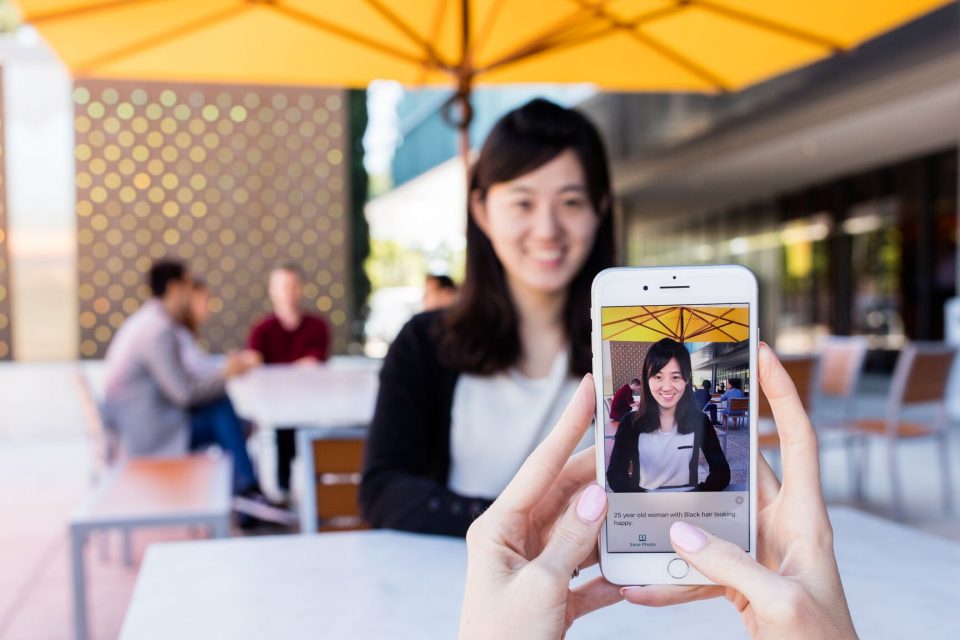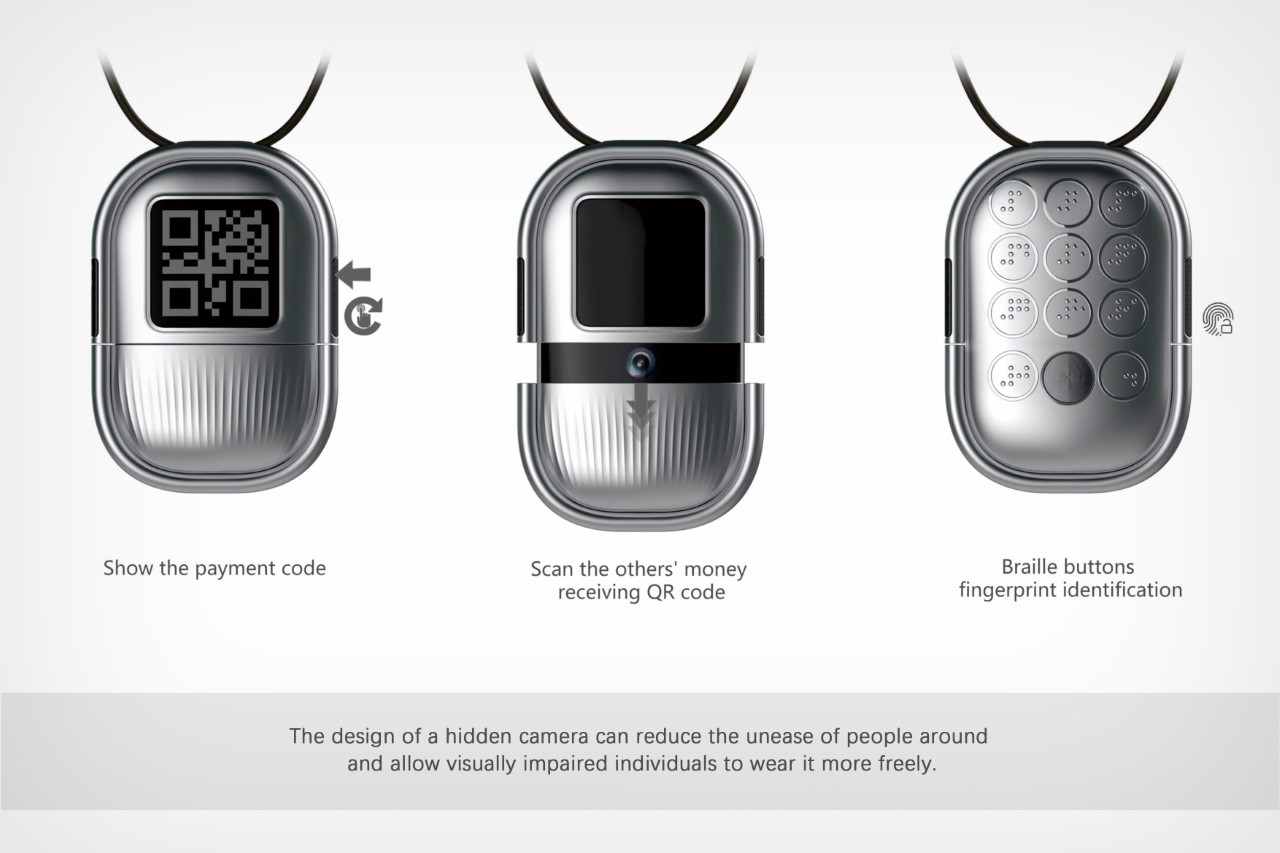Empowering Self-reliance With Assistive Modern Technology for the Blind
The integration of assistive innovation into the lives of individuals with visual impairments stands for a substantial development in advertising independence and self-sufficiency. From innovative screen readers to sophisticated clever walking canes, these devices not just enhance daily navigating and communication but likewise encourage individuals to involve meaningfully in different facets of life. As we check out the myriad advantages and real-world applications of these innovations, it ends up being crucial to take a look at the underlying aspects that contribute to their effectiveness and the possibility for future developments in this important area.
Introduction of Assistive Innovation

The advancement of assistive technology is based in concepts of inclusivity and empowerment. Developments in software program, hardware, and sensory improvements supply customers with choices customized to their particular demands. From screen viewers that transform text to speech, to responsive tools that share details via touch, these tools transform the means people engage with their environments.
In enhancement to functional applications, assistive innovation promotes higher social addition and involvement in different industries, including education and learning and work (Braille displays and notetakers). As research study and growth remain to progress, the potential for assistive innovation to even more boost the lives of visually impaired individuals continues to be promising, leading the way for an extra fair society where every person can thrive
Types of Assistive Instruments
A range of assistive tools have arised to support people with visual disabilities, each designed to fulfill particular demands and improve daily performance. These devices vary from low-tech solutions to sophisticated developments, offering varied options for customers.
Low-tech devices include magnifiers and large-print products that help in reading and writing. Braille tools, such as Braille stylus pens and slates, enable responsive analysis and interaction. Orientation and mobility help, like white walking sticks, aid customers browse their setting securely.
On the higher end of the range, electronic magnification systems and screen readers offer substantial assistance. Electronic magnifiers permit customers to enlarge message and photos on screens, while screen visitors convert electronic web content into synthesized speech, assisting in access to details on mobile phones and computers.
Smartphone applications additionally play a crucial role, supplying features like message acknowledgment and navigation help. Wearable modern technology, such as wise glasses furnished with augmented truth, is arising as an encouraging tool to enhance situational understanding.
Benefits of Assistive Modern Technology
The assimilation of assistive technology substantially enhances the lifestyle for people with visual impairments. These innovations empower individuals by advertising freedom, allowing them to browse their settings more efficiently and do everyday tasks with higher ease. Display visitors and magnification software allow individuals to accessibility digital info, promoting instructional and professional chances that might have formerly been out of reach.
Moreover, assistive gadgets such as wise walking canes and general practitioners applications supply real-time navigation assistance, boosting wheelchair and safety. inexpensive eyeglasses This raised freedom not only enhances self-worth but likewise motivates social interaction, allowing individuals to get involved even more fully in their communities.
Assistive modern technology likewise promotes interaction, assisting customers link with others via voice acknowledgment and text-to-speech applications. This capacity is important for keeping relationships and accessing critical details.
Furthermore, the personalization alternatives offered with several assistive technologies make certain that customers can tailor devices to their details needs, additionally boosting functionality and efficiency. Overall, the benefits of assistive modern technology for individuals with aesthetic problems are profound, promoting a much more inclusive culture where everyone can seek their goals and aspirations.
Instance Research Studies and Success Stories
Highlighting the transformative influence of assistive innovation, many situation researches illustrate exactly how individuals with aesthetic disabilities have effectively integrated these devices right into their lives. One compelling example entails an university student who used display analysis software program to navigate scholastic products and funky glasses on the internet sources properly. This technology not just facilitated her education but additionally enhanced her self-confidence in getting involved in conversations and group tasks.
Another instance research features a specialist who employs a smartphone application made for navigating and item recognition. By utilizing this app, he has actually reclaimed freedom in both his individual and job environments, allowing him to commute individually and engage with coworkers extra successfully.
Additionally, a retired person shared her experience with braille e-readers, which allowed her to access a vast variety of literary works and stay johnny depp glasses gotten in touch with her neighborhood via publication clubs.
These success stories underscore the critical function of assistive modern technology in fostering independence, boosting lifestyle, and advertising social integration for individuals with aesthetic problems (AI-powered visual aids). By embracing these innovative tools, users can get over challenges and seize opportunities that add to their expert and individual satisfaction

Future Trends in Assistive Technology
Innovation in assistive innovation is positioned to redefine the landscape of support for individuals with visual impairments. Arising trends emphasize the integration of expert system (AI) and device learning, which boost the performance of gadgets that aid with navigation and details accessibility. For circumstances, AI-driven applications are now capable of analyzing visual data in real-time, making it possible for individuals to involve with their atmosphere much more separately.
In addition, the development of wearable innovation is advancing swiftly. Smart glasses geared up with augmented truth (AR) can provide audio descriptions of surroundings, transforming how individuals communicate with public areas. These tools not only promote freedom yet additionally foster social incorporation.
Furthermore, the Web of Things (IoT) is making homes smarter, enabling for smooth connectivity in between daily devices and assistive gadgets. This connectivity equips individuals by allowing automated responses and voice-activated controls tailored to private requirements.
Verdict
To conclude, assistive innovation plays an essential function in equipping people with visual disabilities by boosting their independence and interaction with their environments. The varied variety of applications and tools readily available not just helps with navigating and communication yet additionally advertises social integration and chances for expert and personal development. As developments proceed in this field, the potential for boosting the high quality of life for those with visual problems will broaden, cultivating greater autonomy and empowerment.
